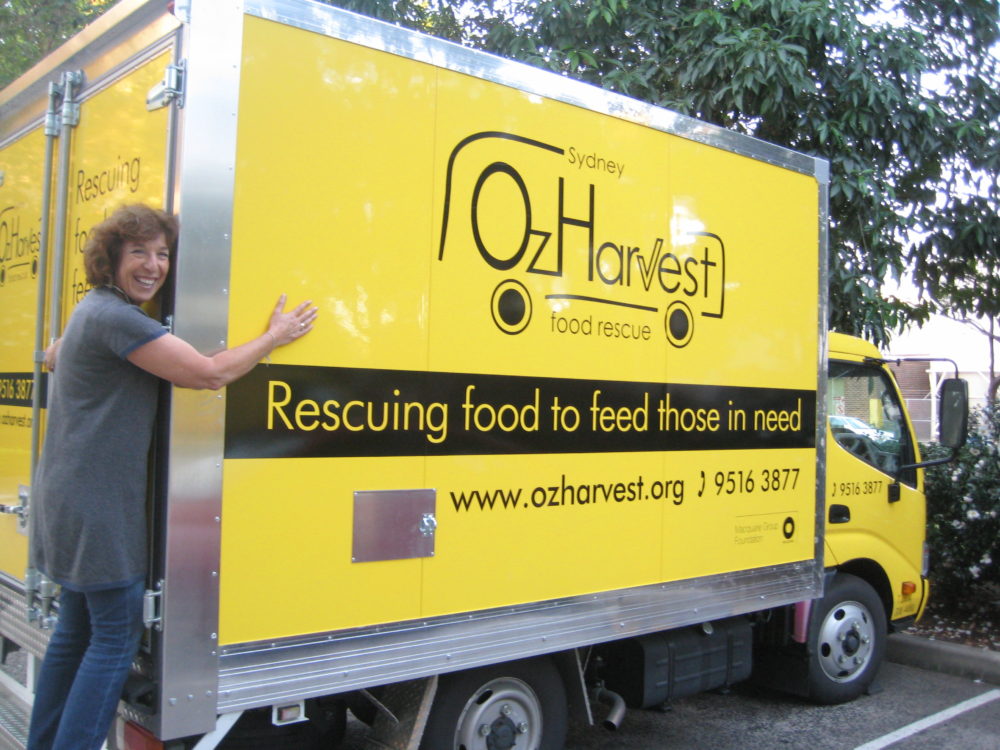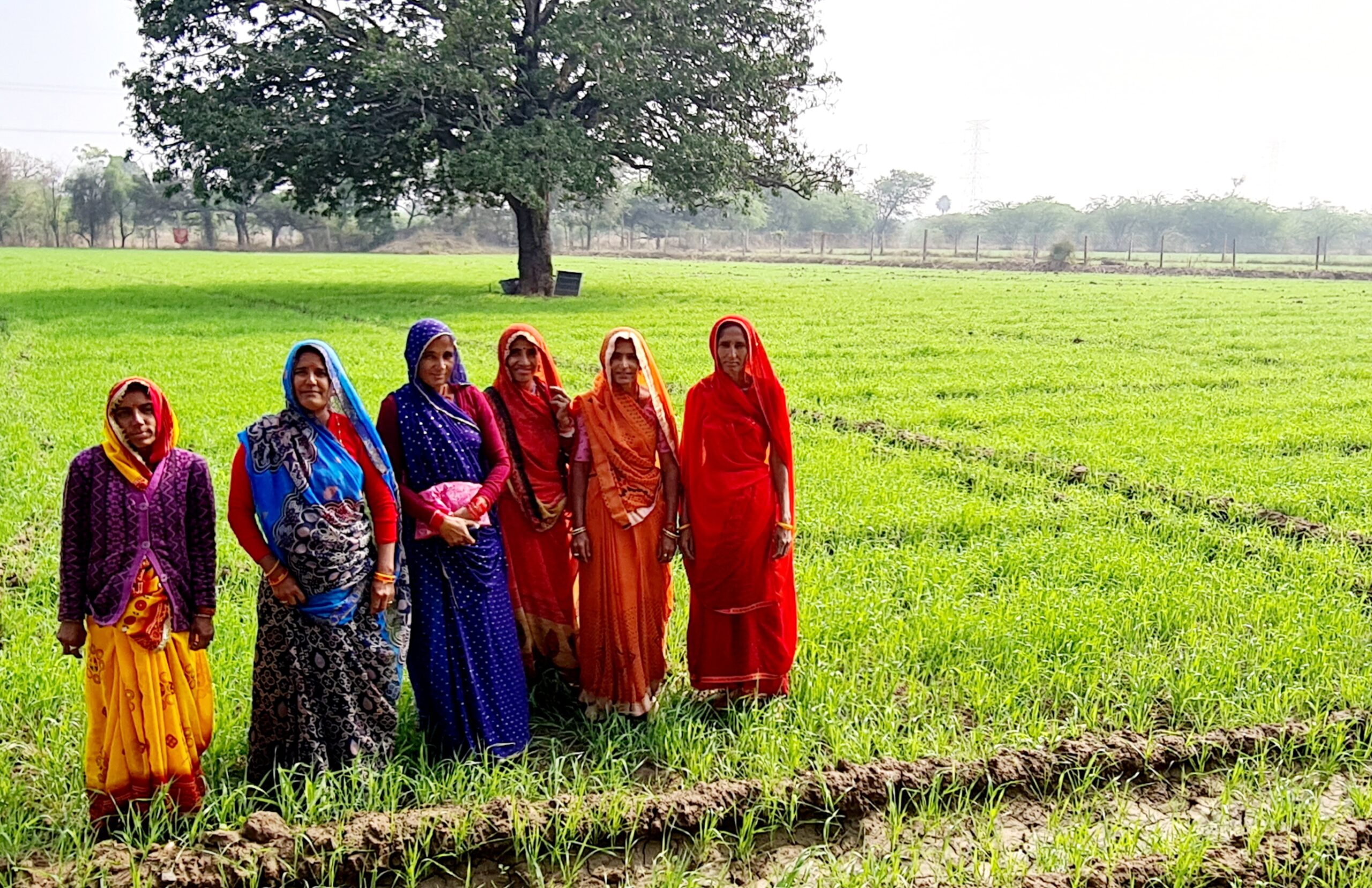By Neena Bhandari
Sydney, 25.06.2010 (IPS): Devina Celeste, 50, waits in a queue of about 40 people at the Neighbourhood Centre in the inner-city suburb of Newtown for the only hot meal she will get on this cold winter night.
The queue, comprising 40 percent teenagers and students, is growing. Many have formed strong bonds of friendship while sharing this only meal a day together on weekdays. There is a brief cheer as the International Society for Krishna Consciousness (ISKCON) `Food for Life’ van arrives. Chris Smith, an IT analyst and volunteer driver is quick to lay the stall and start serving the meal on bio-degradable plates.
“This is my only nutritive meal. Almost 50 percent of my earnings go in rent and the rest in bills and the basics”, says Celeste, a massage therapist, as she relishes the hot “Khichadi” made of lentil, rice and vegetables and the semolina desert. She is amongst a growing number of “working poor”, who are unable to earn enough to support themselves.
Hunger confronts millions globally, including in developed countries like Australia where millions of tonnes food is wasted, ending in landfill sites at a huge cost to the environment.
Every year Australians throw out 3 million tonnes of food worth A$5.2 billion. Poverty causes 60,000 low-income families to go without at least one meal every day, and two million people rely on food relief at some point every year, according to an independent think tank, The Australia Institute report published last November.
But now civil society is taking action, collecting surplus food to feed the disadvantaged. OzHarvest is one such charity rescuing unwanted food from restaurants, retailers, food outlets and corporate kitchens to feed the disadvantaged and communities at risk. Its founder and director, Ronni Kahn, was appalled to see good food going waste while working as an events organiser.
“In our highly consumerist society it seemed if I could rescue good food and deliver it to people in need, I could make a real difference. Donors love to give us food because they have put love and energy, and food has fuel and cost embedded; for the recipients, they get variety, quality and nutritional food which otherwise they couldn’t afford and as food is about sharing and caring, there is dignity in receiving food; and welfare agencies who get food from us can save that money for other programs”, Kahn told IPS.
In November 2004, Oz Harvest picked and delivered for free an equivalent of 13,000 meals to eight charities and in May 2010, it delivered 127,000 meals over 200 different agencies in New South Wales (NSW) and Australian Capital Territory.
Elsie’s Refuge for Women and Children, which houses eight families with 19 children who have been victims of domestic violence, meets much of its food requirements from Oz Harvest deliveries. A resident at the refuge, Tamara Waidig, 19, told IPS that she would be unable to feed herself and her five month old baby if it weren’t for OzHarvest’s weekly supply of fruits, vegetables, bread rolls and meat.
“Five years ago there wasn’t an awareness of food waste and a sector like this didn’t even exist, but now there is a greater awareness about food waste. We have to ensure that food surplus in farms is not going to waste, supermarkets are less picky about what they sell and consumers understand about food miles and use seasonal produce”, says Kahn.
While OzHarvest collects and delivers perishable food every day, Food Bank Australia, formed 18 years ago by people in the food industry, has warehousing facilities. In 2008-09, Food Bank provided 17.25 million kg of food to 2200 welfare agencies.
“Surplus food is delivered to our warehouses by retailers, manufacturers, and also donated from farms. We provide 23 million meals a year or 60,000 meals every day of the week. Since the global financial crisis the demand has increased and there has been a significant shift in the demographic of people seeking food assistance”, Food Bank Australia CEO, John Webster, told IPS.
Even in a country of plenty, there is an ever increasing community of people struggling to put food on the table. “With prices of milk, fruit, vegetables and meat spiralling, we see more families struggling to provide enough nutritious food. In the state of Victoria, 20 tonnes of food goes to landfill every 15 minutes even as an estimated one in 10 people can’t afford enough food, are malnourished or suffer anxiety over getting access to food”, Marcus Godinho, CEO of Melbourne-based FareShare told IPS.
“Regular supplies from supermarkets combined with the food we collect from large multinational food processes has helped us significantly increase the number and variety of meals we make. We provide 45,000 meals a month that we cook and twice that quantity of food that we pick up such as fruit and vegetables and ready-to-eat meals”, says Godinho.
The Good Samaritan Law, which provides legal immunity to those who act in good faith by donating food to charities, has helped this sector. Another Melbourne-based charity, Second Bite, focuses on surplus fresh foods.
“Cost of nutritious food is rising and that of fatty, higher sugar and salt food is decreasing. This is having a significant impact on health. We deliver food in raw state and the agencies cook it in a culturally appropriate manner. In 2009, we provided 702 tonnes of food and 70 percent of it was fruits and vegetables”, informs Second Bite spokesperson, Russell Shields.
Instead of losing up to 50 per cent of food from the field to the fork, SecondBite is calling for an Australian national food policy to enable a safe, sustainable and nutritious food supply that all community members can access.
Redistributed food not only has health and environmental benefits, but agencies like Meals on Wheels Association, which provides cooked meals at a nominal cost to the old and disadvantaged, say food is also an excellent method of socially engaging old, ill and isolated people.
“We offer more than just a meal as our volunteers provide daily social interaction to frail older people and younger people with disabilities. Old people are dieing in their homes without people knowing. Our volunteers help monitor their health and well-being by alerting other agencies to ensure their needs are being addressed. With larger cohort of older people staying at home, we foresee dramatic increase in need for our services”, says Les Macdonald, CEO of NSW Meals and Wheels, which has 85 per cent volunteers over 60 years.
Reducing food waste can go a long way in eliminating hunger and alleviating people out of poverty.
© Copyright Neena Bhandari. All rights reserved. Republication, copying or using information or photographs from neenabhandari.com content is expressly prohibited without the permission of the writer and the media outlet syndicating or publishing the article.




